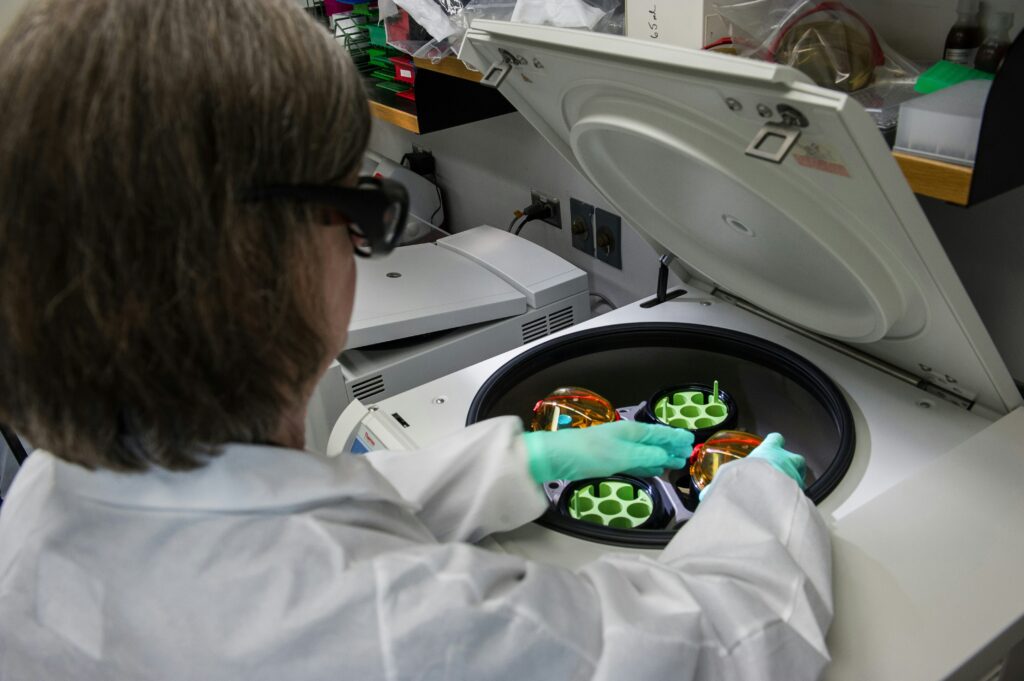What Is PCOS?
Polycystic Ovary Syndrome (PCOS) is one of the most common hormonal disorders affecting people of reproductive age. It occurs when the ovaries produce excessive amounts of androgens (male hormones), and it often disrupts menstrual cycles, ovulation, and overall metabolic health.

Despite the name, not everyone with PCOS has ovarian cysts, and not all cysts mean you have PCOS. In fact, diagnosis involves a combination of symptoms, lab results, and imaging. Common signs include irregular or absent periods, acne, weight gain, and excess facial or body hair (hirsutism). Some may also experience infertility or difficulty getting pregnant due to disrupted ovulation.
Because PCOS can present differently in each person, laboratory tests are essential to confirm the diagnosis and rule out other possible causes of symptoms.
Key Lab Tests for PCOS
Lab tests play a major role in identifying the hormonal imbalances and metabolic concerns associated with PCOS. Here are the most relevant ones:
1. Reproductive Hormone Tests
These help evaluate how your reproductive hormones are functioning and whether your symptoms are likely due to PCOS or another underlying issue.

- Luteinizing Hormone (LH) and Follicle Stimulating Hormone (FSH)
These two hormones regulate the menstrual cycle. In PCOS, the LH:FSH ratio is often elevated, typically above 2:1. This imbalance can interfere with normal ovulation. - Testosterone (Total and Free)
Elevated testosterone levels are a hallmark of PCOS. High levels can lead to unwanted hair growth, acne, and male-pattern hair loss. - DHEAS (Dehydroepiandrosterone Sulfate)
This is another androgen hormone, produced by the adrenal glands. It may be elevated in people with PCOS, especially when adrenal involvement is present. - Sex Hormone-Binding Globulin (SHBG)
SHBG binds to testosterone in the blood. Low SHBG levels result in more free, active testosterone, which can worsen symptoms like acne and hair growth. - Prolactin
High prolactin can mimic PCOS symptoms such as missed periods. Measuring this helps rule out conditions like prolactin-secreting tumors or thyroid dysfunction.
2. Metabolic and Insulin-Related Tests
PCOS is often accompanied by insulin resistance, which increases the risk of prediabetes, type 2 diabetes, and metabolic syndrome.

- Fasting Insulin and Glucose
Elevated fasting insulin can indicate that your body is struggling to manage blood sugar effectively. When this persists, it can lead to full-blown insulin resistance or diabetes. - HbA1c (Glycated Hemoglobin)
This test gives a three-month average of your blood sugar levels. It’s a reliable way to check for prediabetes or diabetes.
Early detection of insulin issues is crucial, as many PCOS-related complications stem from metabolic dysfunction rather than reproductive hormone imbalance alone.
3. Cholesterol and Lipid Panel
People with PCOS are at a higher risk for cardiovascular problems. Checking cholesterol helps assess long-term heart health risks.

- Total Cholesterol, HDL, LDL, and Triglycerides
PCOS may result in elevated LDL (bad cholesterol), reduced HDL (good cholesterol), and high triglycerides. These are all red flags for heart disease.
4. Thyroid Function Tests
Because thyroid disorders share symptoms with PCOS, they must be ruled out before confirming a PCOS diagnosis.

- TSH (Thyroid-Stimulating Hormone), Free T3, and Free T4
An underactive thyroid (hypothyroidism) can cause irregular periods, weight gain, and fatigue—just like PCOS. These tests ensure the thyroid isn’t the primary cause.
5. Pelvic Ultrasound (Transvaginal or Abdominal)
An ultrasound may reveal “polycystic” ovaries, which are enlarged with many small follicles. While not all people with PCOS will show this, it can support the diagnosis when combined with hormonal symptoms and irregular periods.
It’s worth noting: having polycystic ovaries doesn’t mean you have PCOS. Many people have cysts without the hormonal or metabolic symptoms.
How Do Doctors Make a PCOS Diagnosis?
The Rotterdam criteria are widely used to diagnose PCOS. You need at least two out of these three:
- Irregular or absent ovulation (often seen as irregular periods)
- High levels of androgens (from symptoms or blood tests)
- Polycystic ovaries on ultrasound
Other conditions with similar symptoms—like thyroid disorders, hyperprolactinemia, or congenital adrenal hyperplasia—must be excluded with proper testing.
Why Testing Matters
Getting tested is essential not only for diagnosis but also for creating an effective treatment plan tailored to your needs. Some benefits of testing include:

- Understanding Your Hormones: Identifying the exact imbalance helps target treatment effectively.
- Planning for Fertility: Those trying to conceive may benefit from ovulation induction medications.
- Monitoring Metabolic Health: Early detection of insulin resistance can help prevent diabetes and cardiovascular issues.
- Tracking Progress: Follow-up labs help measure how well treatment or lifestyle changes are working.
How to Prepare for PCOS Testing
For the most accurate results:
- Schedule hormone testing in the early follicular phase of your cycle (usually days 2–5).
- Fast for 8–10 hours before glucose or insulin tests.
- Avoid intense exercise, caffeine, or alcohol the day before testing.
- Inform your doctor about any medications or supplements you’re taking, especially hormonal birth control, as it may skew results.
Taking Control of PCOS
PCOS is more than just a reproductive issue—it’s a complex hormonal and metabolic disorder that can affect many aspects of your health. While symptoms can be confusing or even frustrating, lab testing offers clarity.

The right combination of lab tests allows healthcare providers to make an informed diagnosis, tailor treatment, and monitor your progress over time. Whether you’re managing irregular cycles, dealing with skin changes, or concerned about long-term health, understanding your blood test results puts you in control.
If you suspect you may have PCOS or have already been diagnosed, talk to your doctor about comprehensive lab testing. And if you need help understanding your results, Diagnostic Diaries is here to guide you—one test at a time.


